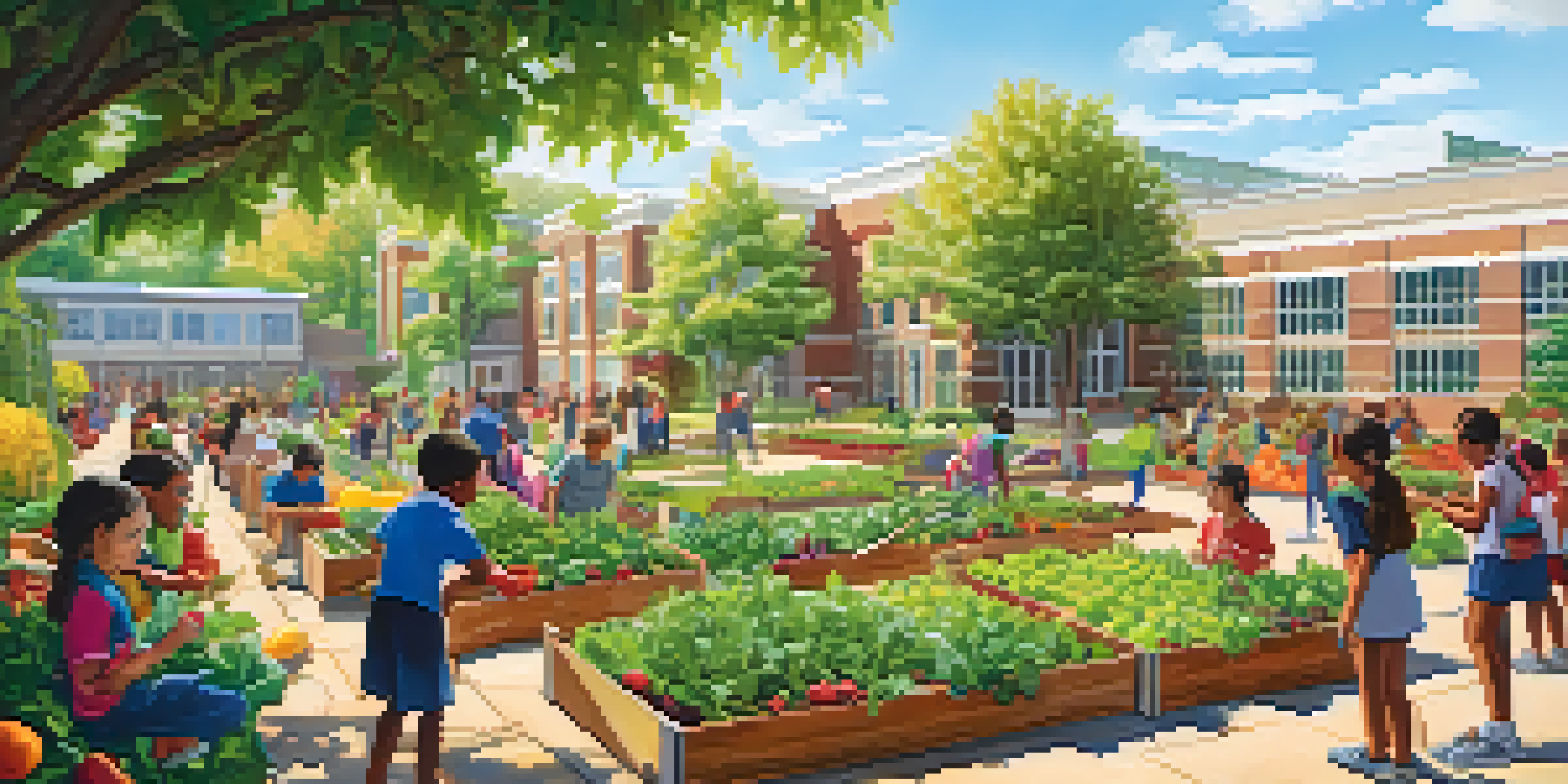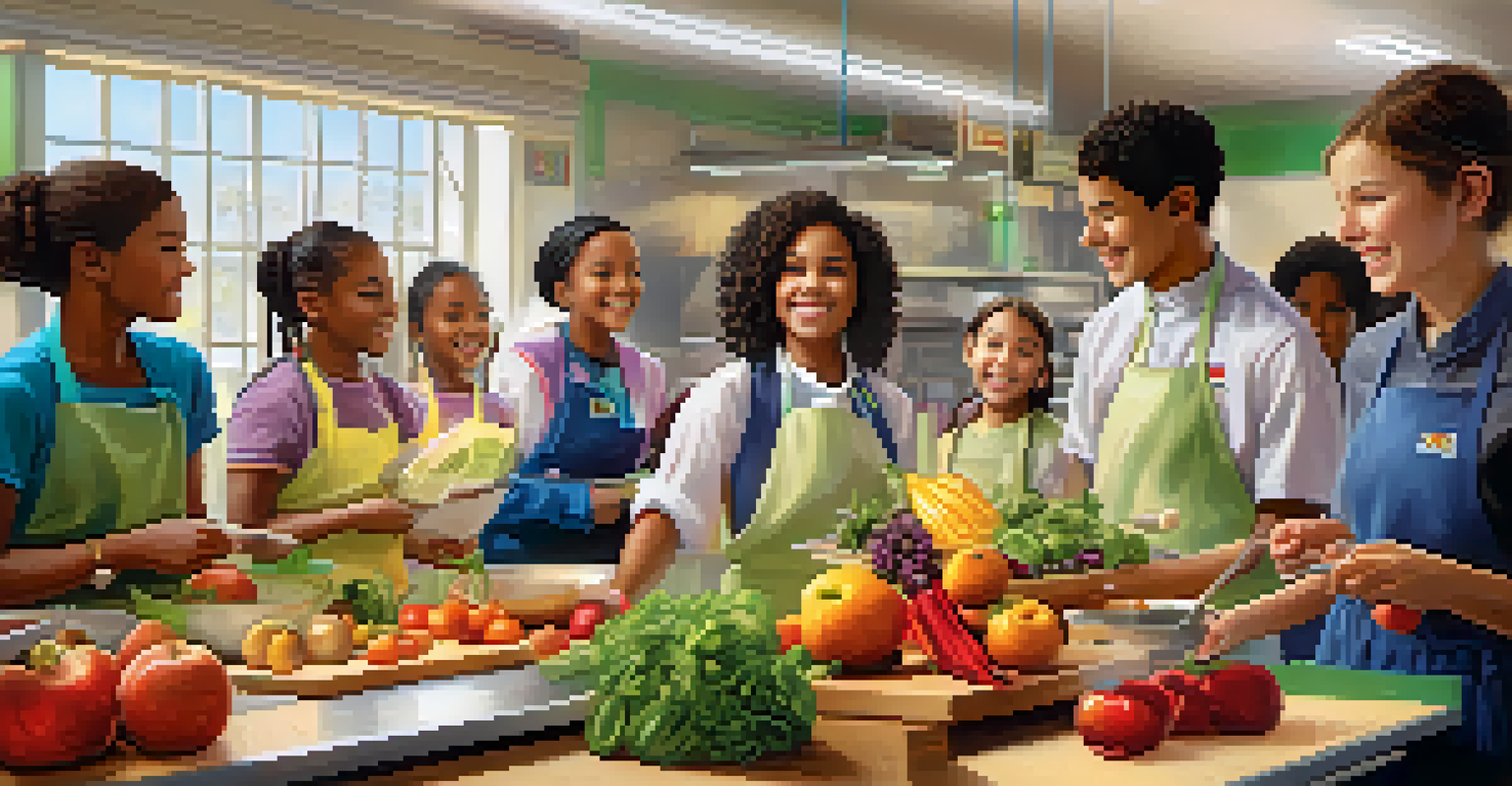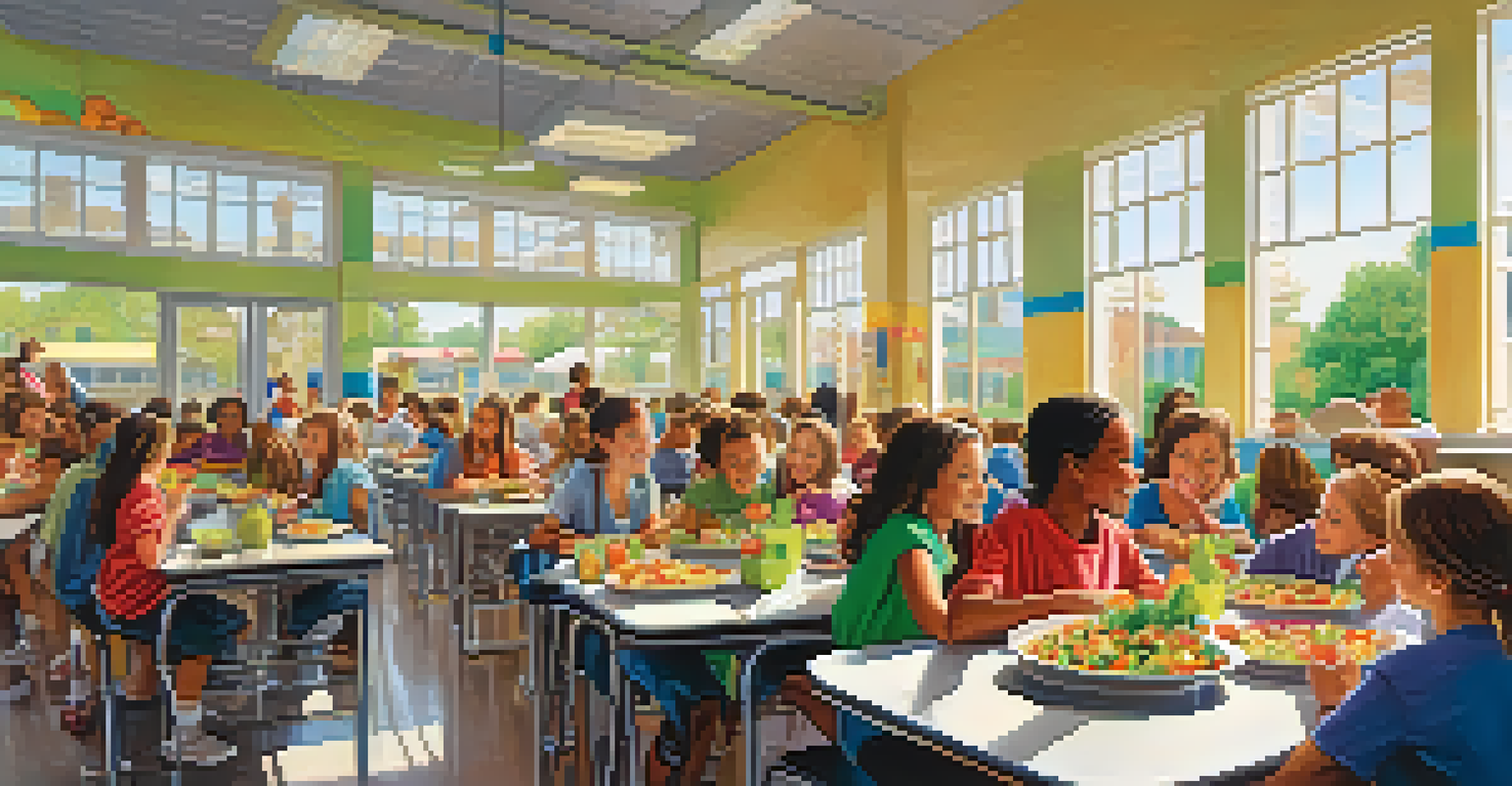Nutrition and Wellness Programs Offered in Pasadena Schools

Overview of Nutrition Programs in Pasadena Schools
Pasadena schools have embraced a variety of nutrition programs aimed at promoting healthy eating habits among students. These initiatives are designed not only to provide balanced meals but also to educate students about nutrition. By focusing on fresh, local ingredients, these programs help foster a culture of wellness within the school community.
Let food be thy medicine and medicine be thy food.
One of the standout features of these programs is their emphasis on incorporating fruits and vegetables into daily meals. Schools partner with local farms to ensure students have access to fresh produce, which not only supports local agriculture but also enhances the quality of meals served. This farm-to-school approach has been shown to improve students' preferences for healthy foods.
Moreover, nutrition education is integrated into the curriculum, allowing students to learn about the importance of good nutrition in a fun and engaging way. Workshops and cooking classes are often organized, empowering students to make healthier choices both in school and at home.
Wellness Initiatives Supporting Student Health
In addition to nutrition programs, Pasadena schools implement various wellness initiatives that support the overall health of students. These programs often focus on physical activity, mental health, and social-emotional learning. By promoting a holistic approach to wellness, schools strive to create a supportive environment conducive to student success.

Regular physical education classes and after-school sports programs are fundamental components of these wellness initiatives. These activities encourage students to stay active, build teamwork skills, and develop a lifelong appreciation for fitness. Furthermore, such programs can significantly reduce stress and improve mood, contributing to better academic performance.
Nutrition Programs Promote Healthy Eating
Pasadena schools implement nutrition programs that emphasize fresh, local ingredients and nutrition education to foster healthy eating habits among students.
Mental health resources are also a priority, with schools offering counseling services and workshops on stress management. By addressing mental well-being, Pasadena schools recognize the importance of emotional health in the learning process. This comprehensive approach ensures that students are not just physically healthy, but also mentally resilient.
The Role of Parents and Community in Nutrition
Parents and the community play a crucial role in the success of nutrition and wellness programs in Pasadena schools. Engaging families through workshops and informational sessions helps them understand the importance of nutrition and wellness in their children's lives. This collaboration fosters a supportive atmosphere where healthy habits can thrive both at school and at home.
The greatest wealth is health.
Community partnerships also enhance these programs by providing resources and support. Local organizations often contribute by sponsoring events, donating food, or volunteering to assist in school activities. These partnerships not only enrich the programs but also strengthen community ties, creating a network of support for students.
Moreover, schools encourage parents to participate in school meal planning and feedback sessions. By involving families in decision-making, schools ensure that the meals served reflect the preferences and dietary needs of the students. This inclusive approach empowers parents and helps cultivate a shared commitment to student health.
Cultural Considerations in Meal Planning
Pasadena schools recognize the importance of cultural diversity in meal planning, aiming to serve a variety of foods that reflect the student population. This consideration ensures that all students feel represented and included at mealtimes. By incorporating culturally diverse foods, schools foster an appreciation for different culinary traditions and promote inclusivity.
The process often involves collaboration with families and community members to gather insights on traditional foods and dietary restrictions. Schools strive to accommodate specific dietary needs, whether they stem from cultural practices, health conditions, or personal preferences. This flexibility helps students feel valued and respected for their unique backgrounds.
Wellness Initiatives Support Overall Health
In addition to nutrition, Pasadena schools focus on wellness initiatives that include physical activity and mental health resources to support student success.
Additionally, schools use these opportunities to educate students about the nutritional benefits of various foods from different cultures. This not only enhances their culinary knowledge but also encourages open-mindedness and respect for diversity. Such initiatives contribute to a richer school environment where every student can thrive.
Benefits of School Gardens for Nutrition Education
School gardens have become an invaluable resource for nutrition education in Pasadena schools. These gardens provide students with hands-on experiences that connect them to the food they eat, fostering a deeper understanding of healthy eating. By growing their own fruits and vegetables, students learn about the importance of fresh produce and sustainable practices.
Working in the garden also encourages teamwork and responsibility, as students collaborate to plant, maintain, and harvest their crops. This hands-on involvement instills a sense of pride and accomplishment, making healthy eating more appealing. Additionally, the garden serves as an outdoor classroom where lessons about science, biology, and nutrition come to life.
Furthermore, the produce harvested from school gardens can be incorporated into school meals, creating a direct link between the garden and the cafeteria. This not only enhances the quality of meals but also reinforces the idea that healthy eating starts with knowing where food comes from. Overall, school gardens are a fantastic tool for promoting nutrition and wellness.
Impact of Technology on Nutrition Education
Technology plays an increasingly vital role in enhancing nutrition education in Pasadena schools. Digital platforms and mobile apps are being utilized to engage students in interactive learning experiences. These tools make it easier for students to access information about nutrition and health, encouraging them to make informed choices.
Online resources such as meal planning tools and nutrition tracking apps empower students to take charge of their health. By providing personalized insights and recommendations, these technologies help students understand their dietary habits and set achievable health goals. This tech-driven approach adds an exciting dimension to nutrition education.
Community Involvement Enhances Programs
Parents and local organizations play a crucial role in the success of nutrition and wellness initiatives by collaborating and providing essential resources.
Moreover, virtual cooking classes and nutrition workshops have become popular, especially in light of recent events that forced many schools to adapt. These online sessions allow students to learn valuable cooking skills and nutritional knowledge from the comfort of their homes. The integration of technology ensures that nutrition education remains accessible and relevant to today's students.
Future Directions for Nutrition and Wellness Programs
Looking ahead, Pasadena schools are committed to continuously improving their nutrition and wellness programs. This includes expanding partnerships with local farms, enhancing educational resources, and incorporating feedback from students and parents. The goal is to create an even more robust framework for promoting health and wellness among students.
In the coming years, schools will likely focus on integrating more technology into their programs, making nutrition education more interactive and engaging. By utilizing innovative tools, schools can better connect with students and help them understand the long-term benefits of healthy living. This evolution is essential for keeping pace with the changing needs of students.

Additionally, there is a growing emphasis on mental health and well-being, recognizing its impact on overall student success. Schools are exploring new ways to support emotional health through workshops, counseling, and peer support programs. By prioritizing both nutrition and mental well-being, Pasadena schools are setting the stage for a healthier, happier generation of students.